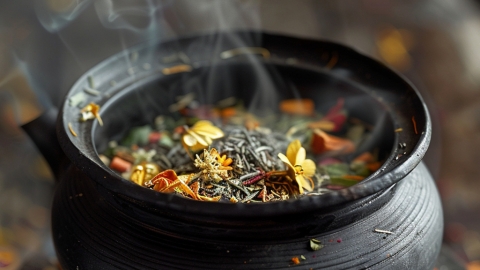Can I drink traditional Chinese medicine after eating mulberries?
Generally, if there is no explicit contraindication between the herbal medicine and mulberries, it is usually acceptable to consume them after eating mulberries. However, if there is a potential interaction between the herbal medicine and mulberries, it is advisable to avoid continuing the herbal treatment. If in doubt, it is recommended to consult a healthcare professional in advance. Detailed analysis is as follows:

In general, if there are no clear compatibility issues between the herbal medicine and mulberries, and the amount of mulberries consumed is moderate, it should be fine to take herbal medicine after eating mulberries. Mulberries themselves are a type of medicinal material with functions including nourishing yin and blood, promoting fluid production, and moistening the intestines. Moderate consumption typically does not significantly affect the efficacy of herbal medicine.
If the herbal medicine contains ingredients that may interact with mulberries, consuming mulberries before taking the herbal medicine might affect the therapeutic effectiveness. Additionally, excessive consumption of mulberries may burden the spleen and stomach due to their cold nature, thus affecting the absorption and efficacy of the herbal medicine. Moreover, individuals with a cold constitution of the spleen and stomach or those prone to diarrhea may experience worsened discomfort symptoms after consuming mulberries and then taking herbal medicine.
During the course of taking herbal medicine, in addition to paying attention to compatibility with foods such as mulberries, one should also follow the physician's instructions, take the medicine on time and in the correct dosage, and maintain healthy dietary habits and a regular lifestyle to promote recovery.




